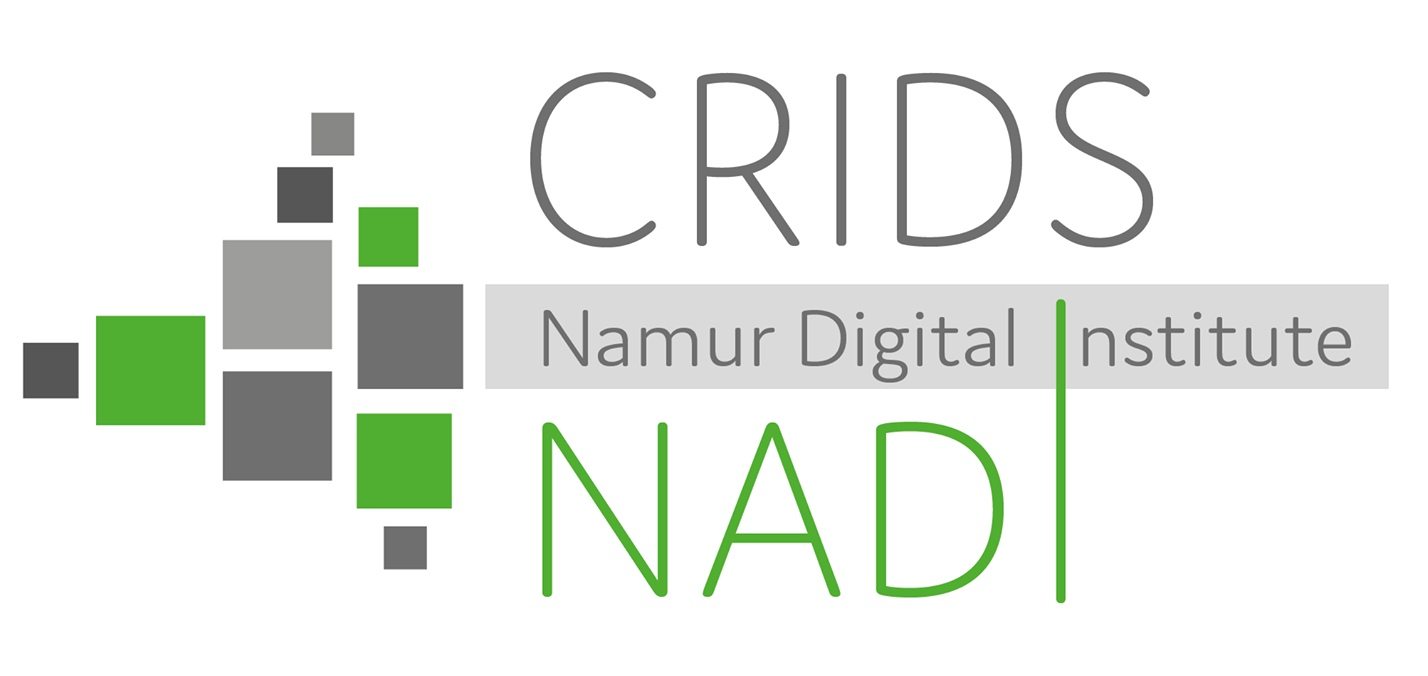Digital Education

Digital media literacy (DML) gathers all the competences necessary to evolve in a reflexive and autonomous way in our contemporary digital media environment. According to the Belgian French-speaking Media Education Council (CSEM, Conseil Supérieur de l’Education aux medias) framework, these competences address three dimensions: technical, informational (semiotics) and social (pragmatics). Following this definition and theoretical framework, the research on DML at the CRIDS aims to:
- identify ethical, societal and policy issues for digital media literacy education
- analyse media practices and competences
- develop frameworks for digital media literacy and education
- design digital media education activities and tools
- train educators, specifically in schools and in the work context.
Whereas digital systems become more complex and ubiquitous (Big Data, algorithms, artificial intelligence, connected objects, etc.), digital media education issues also need to tackle infrastructure and technology topics both at the technical and critical levels. The CRIDS has developed interdisciplinary research projects in collaboration with computing science experts within the Namur Digital Institute (NaDI), gathered through the Digital Education Research Chair.
Latest publications
Coming soon
Key publications
J. JACQUES, A.S.COLLARD, Digital media literacy in teamwork and distance work : competences, discourse and organizational design, Namur, Presses universitaires de Namur, 2019, 239 p. (FREE PDF HERE)
E. HAINEAUX, “L’écriture sur soi : compétence liée à des pratiques transmédia ?”, in Collard, A.-S., & Collignon, S. (eds), Actes de la journée d'études sur le transmédia, Namur, PUN, 2019 (to be published).
J. JACQUES, « Personal information management and organisation competencies : a review of information literacy conceptual frameworks and standard», Information literacy in everyday life, Dordrecht, Springer, 2019, pp. 50-59
B. DUMAS, B. FRENAY, J. HENRY, A. SMAL, A.-S. COLLARD, A. HERNALESTEEN, «AI in a Nutshell : Three Hands-on Activities for Teenagers», IDC 2018, Trondheim, Norvège, 19/06/18-22/06/18.
A.-S. COLLARD, J. JACQUES, «Eduquer aux robots : les enjeux de la métaphore du vivant», in Actes du 16ème Séminaire M@rsouin, Le Bono, Auray, France, 31/05/18.
J. HENRY, J. HERNALSTEEN, B. DUMAS, A.-S. COLLARD, «Que signifie éduquer au numérique ? Pour une approche interdisciplinaire.», De 0 à 1 ou l'heure de l'informatique à l'école : Actes du colloque Didapro 7 - DidaSTIC, Lausanne, Suisse, Peter lang, pp. 61-82.
V. LIGURGO, T. PHILIPPETTE, P. FASTREZ, A.-S. COLLARD, J. JACQUES, «A method combining deductive and inductive principles to define work-related digital media literacy competences», Information Literacy in the Workplace, Dordrecht, Springer, 2018, pp. 245-254.
A.-S. COLLARD, T. DE SMEDT, M. DUFRASNE, P. FASTREZ, V. LIGURGO, G. PATRIARCHE,T. PHILIPPETTE, «Digital media literacy in the workplace: a model combining compliance and inventivity», Italian Journal of Sociology of Education, Vol 9, n°1, 2017, pp. 122-154.





